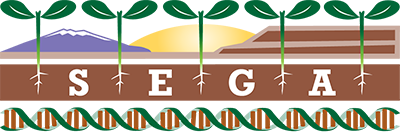You are here
Importance of species interactions to community heritability: a genetic basis to trophic-level interactions.
Publication Type:
Journal ArticleSource:
Ecology letters, Volume 9, Issue 1, p.78 - 85 (2006)ISBN:
1461-023XURL:
http://www.ncbi.nlm.nih.gov/sites/entrez?Db=pubmed&DbFrom=pubmed&Cmd=Link&LinkName=pubmed_pubmed&LinkReadableName=Related%20Articles&IdsFromResult=16958871&ordinalpos=3&itool=EntrezSystem2.PEntrez.Pubmed.Pubmed_ResultsPanel.Pubmed_RVDocSumhttp://www.ncbi.Keywords:
Animals, Aphids, Birds, Food Chain, Genotype, Plant Leaves, PopulusAbstract:
<p>Recent community genetics studies have shown that specific genotypes of a host plant support distinct arthropod communities. Building upon these findings, we examined the hypothesis that a trophic community consisting of cottonwood trees, a galling herbivore and avian predators could also be related to the genetics of the host tree. We found genetic correlations among phytochemistry of individual tree genotypes, the density of a galling herbivore, and the intensity of avian predation on these herbivores. We detected significant broad-sense heritability of these interactions that range from H(B)2 = 0.70 to 0.83. The genetic basis of these interactions tended to increase across trophic levels suggesting that small genetic changes in the cottonwood phenotype could have major consequences at higher trophic levels affecting species interactions and energy flow. These findings show a heritable basis to trophic-level interactions indicating that there is a significant genetic basis to community composition and energy flow that is predictable by plant genotype. Our data clearly link plant genetics to patterns of avian foraging and show that species interactions are important components of community heritability and ecosystem processes. Overall, these data support the hypothesis that evolution of plant traits can alter trophic-level interactions and community composition.</p>
- Log in to post comments
- Google Scholar
- RTF
- EndNote XML
- RIS
Theme by Danetsoft and Danang Probo Sayekti inspired by Maksimer
